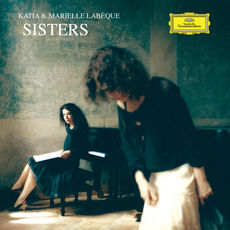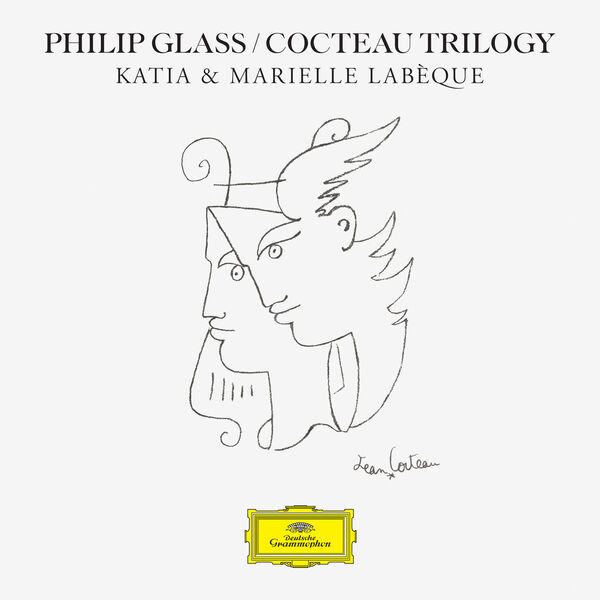This was one of the most anticipated albums of the year. It must be said that Cocteau Trilogy combines all the ingredients to stand out as a flagship album of 2024. First and foremost, there are the Labèque sisters, the masters of four-handed piano, who need no introduction. Since their debut recordings in the early 1970s, when they were not even twenty, Katia and Marielle Labèque have chosen never to confine themselves to a particular register or genre. They can be found equally at home with Messiaen – who participated in the production of their very first album Vision de l’Amen - as with Joplin, Stravinsky, Debussy… and Philip Glass.
It is the latter who is at the heart of this Cocteau Trilogy. In the mid-1990s, the American composer, a pioneer of repetitive music but already well emancipated from it, composed a series of operas inspired by the works of the playwright Jean Cocteau. It was a loving gaze towards France, where Glass had taken up residence between 1964 and 1966 to study under the great pedagogue Nadia Boulanger. Several adaptations into piano suites were derived from these works, notably those penned by Paul Barnes or Dennis Russell Davies.
In 2021, the Labèque sisters, friends of the composer and well-versed in contemporary repertoire, premiered the suites for two pianos from the chamber opera Les Enfants Terribles during a series of concerts. Of course to immediate praise. Between the pianists and the composer, the idea arose to create a complete program to be immortalized on record. Three years later, here is the Cocteau Trilogy!
Katia & Marielle Labèque – Glass: Les enfants terribles: She Took The Path
Deutsche Grammophon - DGAs is their custom, Katia and Marielle Labèque deliver a massive sonic punch from the very first seconds of listening to the “Orpheus Suite,” which opens the album at a particularly brisk tempo. Their firm and precise grip on the attacks, immediately recognizable, captivates the listener and doesn’t let go until the last second. But an album by the Labèque sisters wouldn’t be complete without skilful alternations between power and softness, between explosions of colour and the sobriety of playing, perfectly balancing the discourse for the benefit of listening pleasure.
In this regard, Philip Glass’s writing, his sense of harmonic modulations and chord symmetry, fit perfectly with the pianistic technique of the performers. Between sadness and passion, rage and contemplation, Cocteau Trilogy is a multifaceted album that refreshes its emotions with every second. And it pays immense tribute to both the composer and his interpreters.







